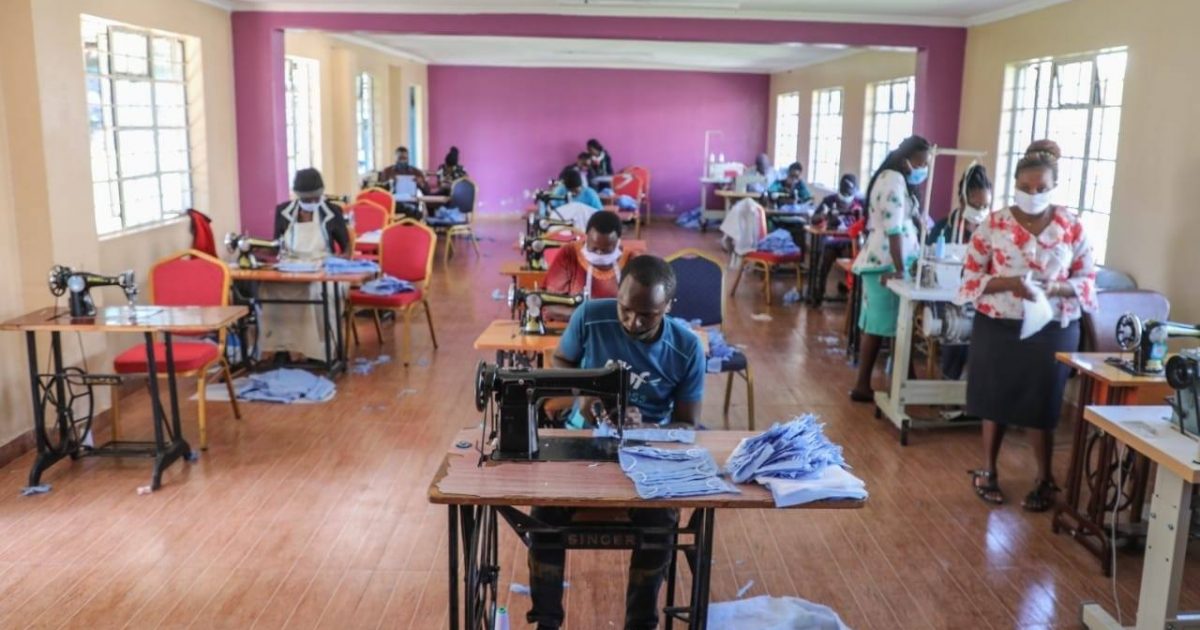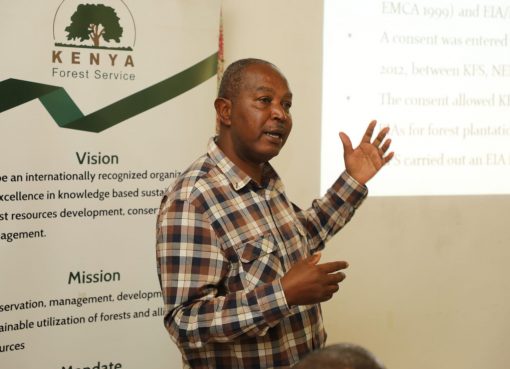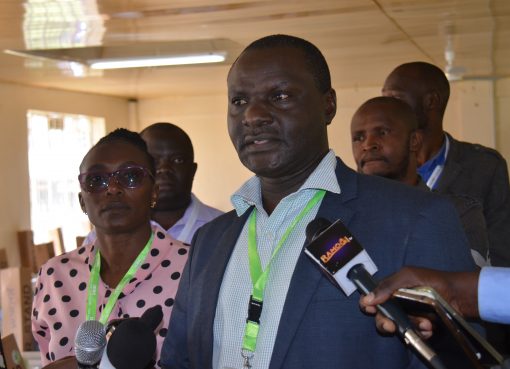Nakuru County Government is working out a partnership with several private companies aimed at equipping students in Youth Polytechnics and Technical Vocational Education Training Institutes (TVETs) with hands-on skills in an industry setting during their time of study.
Governor Lee Kinyanjui indicated that the venture was geared towards bridging skills gap among TVET graduates by ensuring that students spend at least 50 percent of their training working with relevant industries.
“We are exploring a model where students are subjected to combination of theory and practical training, in a real-life work environment through an interchange of training at a TVET institute and in a company,” he stated.
He announced that his administration had set aside Sh164 million towards youth empowerment initiatives including upgrading facilities at the County’s Vocational Training Centres (VTCs) with the aim of meeting required standards and attracting more youth enrolments.
“Our goal is to have more young people enroll in various courses not offered professionally at the University level. Strengthening the collaborative linkages between the county government and the private sector is one of the most effective ways of driving the TVET agenda as students can be exposed to the real world of industry and business,” stated Kinyanjui.
He made the remarks in a speech delivered on his behalf by Director in charge of political affairs Ms Beatrice Nyawira, during a ceremony for over 200 youths, who had undergone an alternative rite of passage at Mugumo Village within Molo Sub County.
Kinyanjui pointed out that close links between enterprises and training centres have been at the core of Western World’s economic success since the 19th century.
“I believe that building up such a TVET ecosystem in Kenya can provide concrete job opportunities for young Kenyans as well,” he observed.
The county has 24 youth polytechnics spread across the 11 sub counties. According to the Technical Vocational Education and Training Authority (TVETA), there are two accredited public TVET institutions in the county- the Dairy Training Institute in Naivasha and the Rift Valley Institute of Science and Technology in Njoro, and a total of 18 accredited private TVET institutions.
The private sector, the Governor noted, contributes over 70 percent of formal employment but in some cases, they struggle to find candidates due to a mismatch between the courses offered in TVET institutions.
The private sector, stated Kinyanjui can partner with tertiary institutions to develop specialized short-term practical courses, for example, on entrepreneurship, to further sharpen graduates’ business skills.
The Governor added, “My administration is keen to forge partnerships with the private sector in areas of research with emphasis on the changing market environment and consumer trends. This will build a valuable knowledge base that the private sector and the county government can leverage to improve technical training and solve real economic problems.”
He observed that the National Government had rolled out new technical and vocational courses as it began to implement the Competence-Based Education and Training (CBET) policy framework aimed at delivering industry responsive skills.
The governor emphasized that an effective Technical and Vocational Education Training (TVET) system will play a key role in achievement of the Big Four Government agenda and Vision 2030.
“CBET concept entails the involvement of industry in all aspects of training. This will include development of occupational standards, training programmes, facilitation of training as well as assessment. We are keen on entrenching CBET in our systems,” said Kinyanjui
In her remarks, Nyawira stated that in the world over, the labour market was transiting from theoretical expertise to practical-based skills adding that a growing number of Kenyans with good academic qualifications were unemployed because of a mismatch of skills and career choices.
She revealed that there was a growing shortage of technicians and artisans in the country and noted that in order to achieve the Kenya Vision 2030, the country needs 90,000 technicians and over 400,000 artisans to plug the current shortage.
“We boast of having an educated youth, whose glossy academic qualifications are a mismatch with practical industry needs. Our educational institutions are churning out more quantity surveyors, engineers and architects against a backdrop of growing worrisome shortage of vocational skills and competencies such as plumbing, electrical installation, welding, brick laying, painting, carpentry, tailoring among others. If we go on like this, we will start bringing in expatriate artisans and craftsmen,” Nyawira added.
She however expressed optimism that the situation was steadily improving as the national government’s initiative to invest in new equipment, modern technologies and infrastructure and qualified training staff was paying off as student enrolments in TVETS had increased.
Data from the Kenya National Bureau of Statistics (KNBS) shows enrolment of students in national polytechnics, public technical and vocational colleges increased by 4.8 percent to 451,205 in 2020 a sign that the government’s efforts to grow enrolment in the institutions is bearing fruit. The number of TVET institutions increased by 7.5 percent to 2,301 in 2020.
Nyawira challenged parents to champion (TVET) courses to help their children acquire relevant skills favourable to the local and international labour markets adding that technical training plays a vital role in strengthening the country’s economy.
She indicated that parents should now focus more on courses offered in vocational training centres and argued that technical and vocational training holds the answer to economic challenges such as unemployment.
“The strength and future of a country’s economy depends on two major factors, skills of its manpower and production which comes from it. This can only be achieved through TVET, as it is the masterpiece to alleviate poverty and usher in growth,” she said.
Nyawira termed the move as detrimental which is to convert technical institutes and polytechnics to constituent university colleges or full- fledged universities, saying this was undermining technological development.
By Anne Mwale and Charloth Chepkemoi




